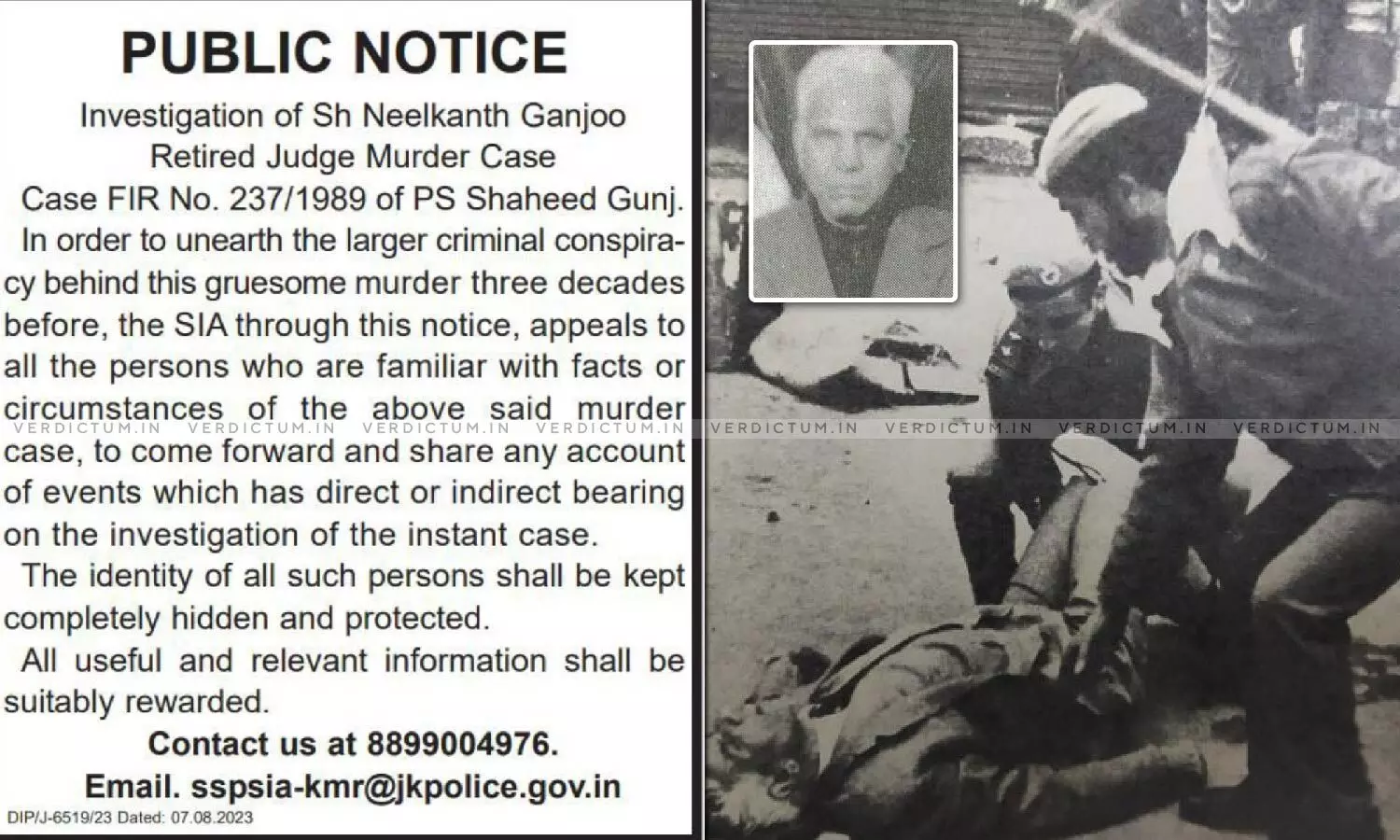
Kashmir Files: Government Reopens Murder Case Of Judge Neelkanth Ganjoo Who Was Killed By Kashmiri Separatists In 1989
 |
|After more than thirty years of the brutal murder of Judge Neelkanth Ganjoo, the State Investigation Agency (SIA) in Jammu and Kashmir has reopened the case and has released a statement asking for help from people who know something about the case. The Agency wants those who remember details to come forward and share what they know. The SIA promises to keep these people's identities a secret and even reward them for their help.
The notice issued on Monday read:
“In order to unearth the larger criminal conspiracy behind the murder of Retired Judge, Neelkanth Ganjoo three decades ago, the State Investigation Agency (SIA) has appealed all persons familiar with facts or circumstances of this murder case to come forward and share any account of events which has direct or indirect bearing on the investigation of the instant case.”
Neelkanth Ganjoo, a retired Sessions and District Judge was shot dead on November 4, 1989, by Kashmiri separatists in Srinagar. He was killed in broad daylight by three terrorists at the Hari Singh Street market, which is very close to the High Court building. He was shot from close range, and he died on the spot.
In 2002, Yasin Malik in an interview to the BBC admitted that JKLF killed Judge Ganjoo "because the judge passed a politically motivated judgment against a great leader of Kashmir, who was a political leader." Maqbool Bhat was convicted and sentenced to death in August 1968 for the murder of Police Inspector Amar Chand by the then Sessions Judge, Neelkanth Ganjoo. The decision was ultimately upheld by the Supreme Court.
Also Read: The Kashmir Files: Public Execution Of A Judge And Glorification Of His Killers
Reacting to the latest decision of the government, SK Ganjoo, the son of the slain retired judge told ANI, "It's too little too late after 34 years of the incident. Now we don't want our wounds to be scraped again".
Swapna Raina, granddaughter of Justice Ganjoo, however, applauded the decision to reopen the case stating, “This decision has reignited in me a sense of optimism”. She went to on say that “Despite the pain of reopening the wounds the underlying hope remains that justice will prevail”.
She, while thanking the Government of India, further said that the reopening of this case will be one of the hundreds of cases that will follow and bring some sense of relief and closure to families that are waiting for justice to be served.
The SIA has now called upon anyone who knows anything about these events to share what they remember. The public can contact the SIA on phone number: 8899004976 or email address: [email protected].